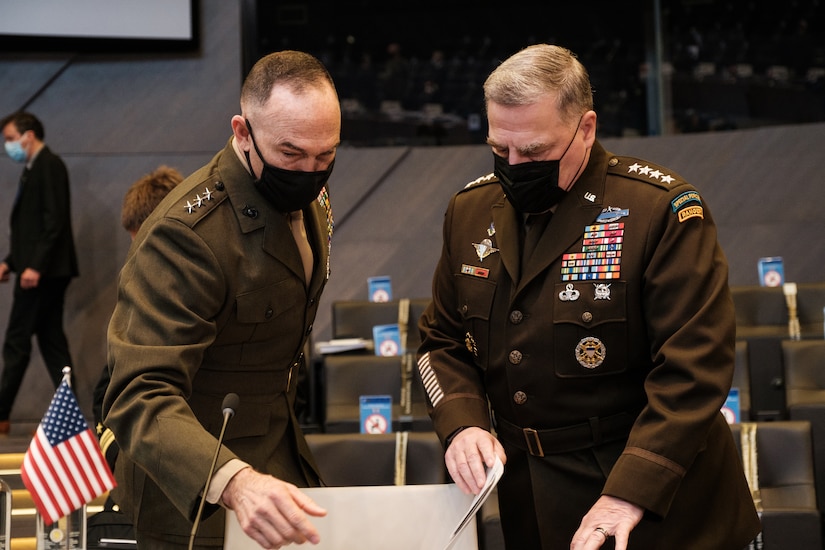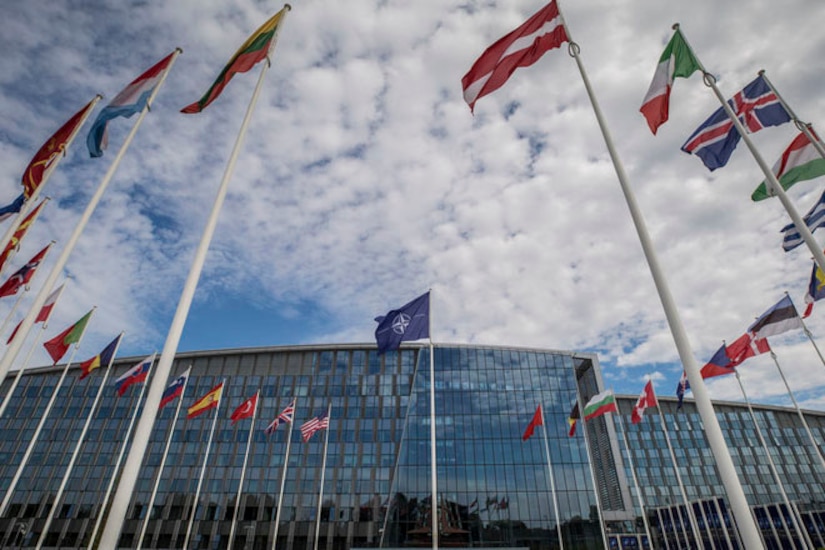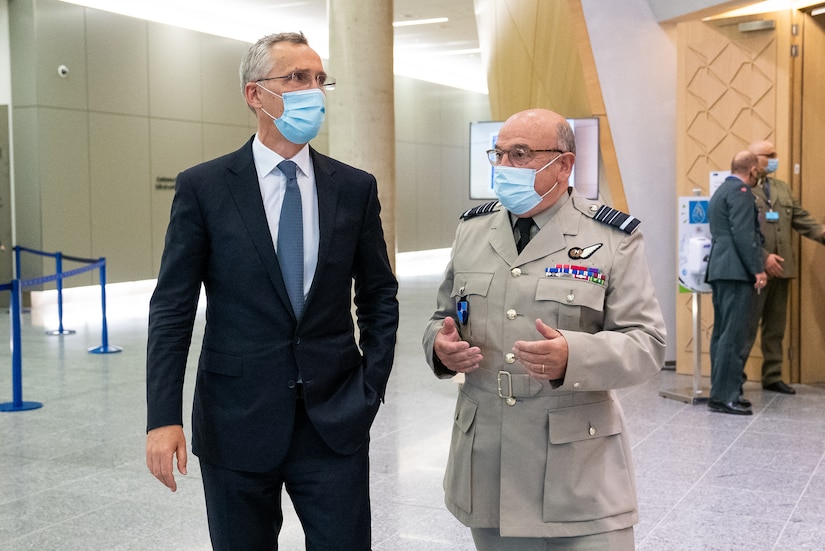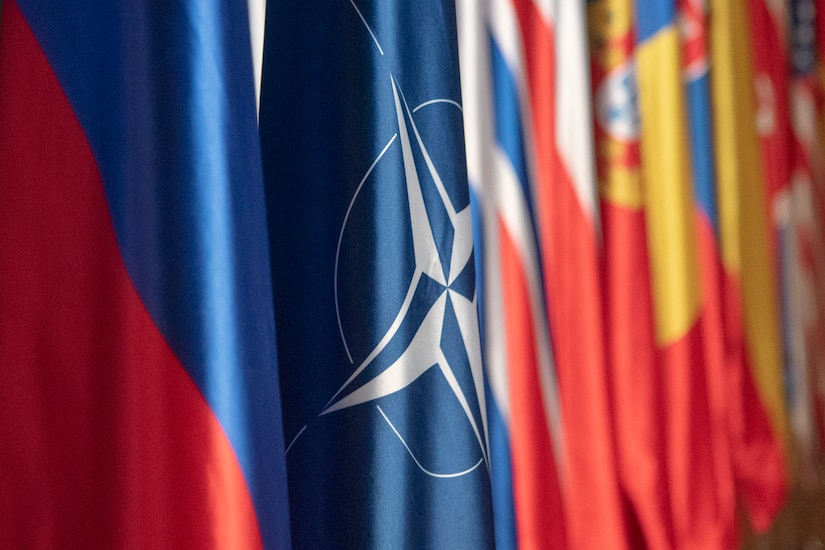May 18, 2021 | , DOD News
Royal Air Force Air Chief Marshal Sir Stuart Peach touted NATO's ability to adapt and evolve to stay effective and relevant as a deterrent force.
The chairman of NATO's Military Committee spoke at the beginning of a meeting of alliance chiefs of defense in Brussels, today. Army Gen. Mark A. Milley, the chairman of the Joint Chiefs of Staff, represented the U.S. at the meeting.

Peach said the discussion focused on NATO 2030, NATO's military strategic planning and adaptation, and NATO-led operations, missions and activities.
The meeting opened with Secretary General Jens Stoltenberg discussing NATO 2030, which is an initiative that focuses on ensuring that the NATO alliance remains ready to face tomorrow's challenges, and alliance heads of state will discuss in Brussels next month. "[Stoltenberg] informed the Military Committee on progress related to NATO 2030 and the main political issues in the lead up to the Summit," Peach said. "The allied chiefs of defense enthusiastically welcomed the NATO 2030 agenda, which underpins the work of NATO's military authorities."
NATO is effective today, he said. "All four points of the compass, across all the domains of land, sea and air and space and cyber, our highly trained, professional and committed service people are prepared for any endeavor," Peach said.

NATO has evolved in response to growing threats. Russia is the main threat in the Euro-Atlantic region, but China — a rising global power — is also making waves. "Since 2014, we have implemented the biggest reinforcement of collective defense in a generation," Peach said. "We have strengthened our military posture from the Baltic to the Black Sea."
The alliance has undertaken a huge program of adaptation with more investments, modern capabilities and an increased readiness of NATO forces, he said.
But the future will be different, and we will face different difficulties. Climate change is already being felt, and the alliance must incorporate the effects of this in any long-term military development, Peach said. "Climate change will impact our lives in many ways, but crucially for the Military Committee, we are focused on how it affects our common security," he said.
The chiefs called for a survey on the impacts and possible consequences of climate change to be completed across the Alliance's national armed forces. "From there, the military authorities can further integrate climate change risks and considerations into NATO's military planning and exercises," Peach said.

Climate change will affect everything. But there are many threats from other areas. "We see threats and challenges emanating at us [from] many directions," Peach said. "Assertive and rising authoritarian powers, non-state actors and terrorists are challenging the rules-based international order."
Russia is a big problem. Russian President Vladimir Putin continues his program to destabilize the continent, most recently by ordering a large deployment of troops to his nation's border with Ukraine. The movement came with no explanation, and NATO officials called it the largest deployment of Russian forces since the nation's illegal annexation of Crimea in 2014.
"Although we have seen some reduction in the number of Russian troops near the border, tens of thousands remain, including their weapons and equipment," Peach said.
Russian efforts go beyond Eastern Europe. Putin is trying to impose restrictions in the Black Sea, including restricting access to the Sea of Azov through the Kerch Strait. "NATO needs to stay vigilant and preserve our freedom of movement in all relevant seas and airspaces," Peach said.
While the effort against international terrorism has had success, the problem has not disappeared, and NATO nations must gather intelligence, develop capabilities and work with partners to deter this threat.
Other threats to the alliance include malicious cyberattacks, disruptive technologies and nuclear proliferation. "Climate change has implications for security," Peach said. "So, the alliance is responding by adapting and taking action.

In a nod to the growing threat from China, Peach said alliance nations must strengthen resilience and "reduce the vulnerabilities stemming from foreign ownership, coercion or manipulation."
This is Peach's last Military Committee meeting as chairman. The chiefs elected Dutch Navy Adm. Rob Bauer to become chair of the Military Committee next month. He had been chief of defense of the Netherlands armed forces. Peach has served in the position since June 2018. He has helped cultivate excellent military-to-military relations among the 30 NATO allies and with partner nations to the alliance.
Peach helped shape the discussions on the NATO Military Strategy and with the challenging problems posed by Afghanistan, Iraq, the Islamic State of Iraq and Syria and the Balkans.
Milley presented the Air Chief Marshal with the Legion of Merit — the highest U.S. military award presented to foreign leaders.








No comments:
Post a Comment